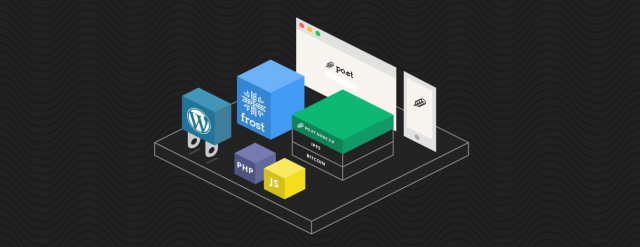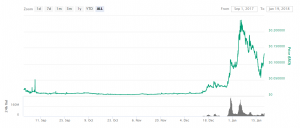
Po.et (POE) Is Here To Change The Way We Treat Intellectual Property

With the advent of the internet, the defensibility of established copyright and intellectual property has struggled to maintain pace with the reduced cost of information sharing. Media marketplaces like Shutterstock have attempted to address this issue by creating centralized hubs for licensing and ownership information of photos, but these marketplaces are neither interoperable nor do they openly and freely share the information with other applications and websites. Here comes Po.et (POE) to change that entirely. We took a closer look at the Po.et White Paper to understand how exactly it is going to work and how it does benefit both digital content creators and investors.
The issues, in particular, include proper and verifiable attribution of ownership, licensing and creation. Digital content lacks metadata information such as authorship, ownership, history and often the date of creation. Furthermore, metadata can be altered or removed after it has been finalized by the author, transferred to the cloud, resized or optimized for network performance. This inherent lack of verifiable information breeds uncertainty, especially when applied to complex chains of licensing, syndication and ownership. For example, a digital publisher licensing a pre-published article does not have the ability to be certain of whether the document in its current form is authentic and owned and able to be licensed. Currently, there is an immediate opportunity for an open protocol to establish the rightful ownership of creative assets, but this protocol must allow for inherently complex and adaptable ownership models.
Po.et (POE) extends the timestamping and hashing features pioneered by Proof of Existence to enable new commercial applications by including additional metadata and discoverability. While Proof of Existence requires users to have the original file in order to verify the file’s hash and timestamp, Po.et allows for the original file and its metadata to be discoverable. This makes it possible for anyone to verify both the authenticity of the original file and the associated metadata.
Po.et uses this shared ledger and data layer to create an extensible platform designed to record ownership and metadata for digital media assets. Po.et’s platform allows a user to generate an immutable ownership certificate of digital works, track and license assets on the web, discover new assets and verify the authenticity of discovered assets.

Po.et is an open source project that is designed for the media and digital publishing initially — the original industry disrupted by the internet. While the internet diminished the barriers to entry for publishing and ushered in a new era of self-publishing and access to information, Po.et aims to enable value to flow within the publishing and digital media industry, from publisher to editor to content creator. In order to do so, Po.et will enable anyone to discover more information about the digital asset(s): Who owns it, can it be licensed or repurposed and what is its origin or publishing trajectory?
Historically, the answers to these questions have been siloed into specific content libraries like Getty Images, Creative Commons or other licensing organizations. Po.et will augment these existing content repositories by creating a shared, open, universal, metadata framework that will enable smart media applications to be built on top. Additionally, Po.et’s implementation of blockchain technology extends the functionality of these existing marketplaces by enabling users to discover and verify their content across the internet.
The growth of the network will provide developers with valuable media data and metadata. This will facilitate the building of new and disruptive decentralized applications (DApps) and unique media integrations including asset marketplaces, rights management applications, and open research marketplaces.
Looking deeper into Po.et’s roadmap we can identify some key features the platform promises in the near future. These would include: Timestamping, Academic Research & Analysis – Admissible Legal Evidence – Internal Discoverability – ISBN replacement – Discovery Marketplace – Brand Licensing, and Open Asset Marketplace.
The POE Token
Te Po.et native token (POE) serves several purposes:
- To bootstrap the network effects of Po.et by creating a community of engaged,
invested stakeholders and publishers. - To raise funds for the long-term development of Po.et.
Te Po.et token is an ERC20 compatible token, built on the Ethereum blockchain for wide compatibility with existing wallets, exchanges, smart contracts and other financial infrastructure.

There are 3,141,592,653 POE tokens overall, of which 50 percent distributed to the community in a public token sale. Of the remaining POE tokens, 10 percent will be distributed to the early investors who funded Po.et development prior to the token sale. An additional 10 percent will be distributed over time to publishers, journalists, alpha partners and others who contribute to growing the Po.et network. Te Po.et Foundation will retain 22 percent of all tokens for long-term development, with the remaining 8 percent going to the early team and founders.

Concluding, Po.et (POE) is definitely one of these platforms that would have a major impact on the internet on a social scale. Digital assets protections, identification, licensing and discoverability on the blockchain is a step forward, leaving the paperwork behind, this time for good.
Let me know your thoughts on this in the comments below.
Reporting for The Independent Republic, Ross Peili